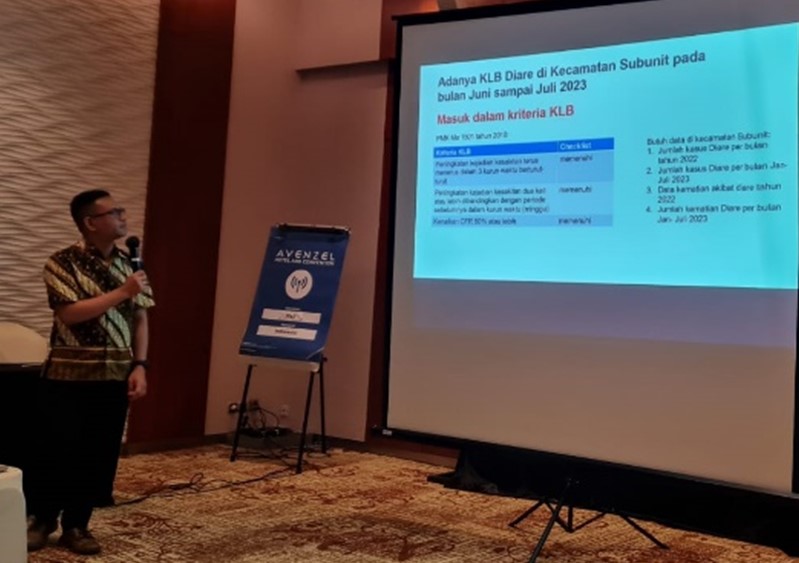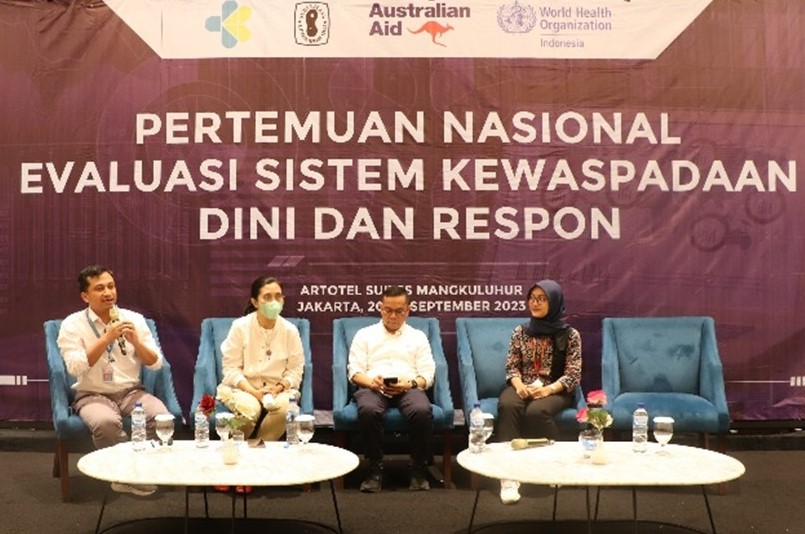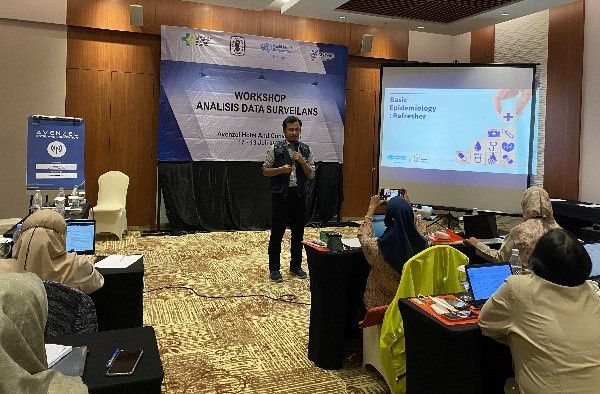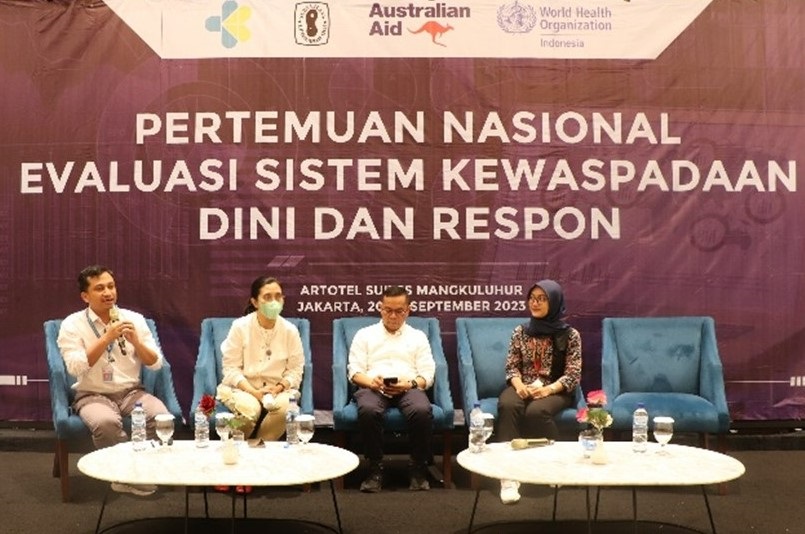Robust surveillance systems are the cornerstone of health emergency preparedness, as they can quickly detect and obtain valuable information for informed decision-making. However, the COVID-19 pandemic has shown that Indonesia has insufficient surveillance capacity to deal with a major health crisis. Indonesia's surveillance system also faces challenges due to the diversity of more than 40 national-level systems, each with its own data collection and processing methods. Meanwhile, more than 10,000 health facilities, laboratories and port health offices across the country have generated surveillance data, but comprehensive analysis at the local level remains a challenge. This highlights the need to develop comprehensive migration plans, improve detection capabilities, evaluate systems, and close gaps in data analysis and exploitation skills.
Recognizing the limitations revealed during the pandemic, the Ministry of Health and WHO have developed a transition plan to strengthen and improve Indonesia's surveillance capacity in 2023. Experts from a variety of sectors participated in the development of this plan, ensuring a One Health approach and a more collaborative response to future pandemics. The transition plan, which will be implemented from the end of 2023, is expected to strengthen detection and risk assessment, monitor the epidemiological characteristics of pathogens, and inform human health interventions.
 Case studies presented by EID working team participants.Credit: MoH/Dr. Toriya Dinihari
Case studies presented by EID working team participants.Credit: MoH/Dr. Toriya DinihariTo improve detection capacity, WHO supported the Ministry of Health (MoH) to conduct 18 batches of training on the National Early Warning and Response System (EWARS) in 2023. These trainings enabled the participation of surveillance staff from various community health centers (puskesmas) and district health departments. Offices and public health laboratories leverage his EWARS, which allows users to perform early detection, early notification, and data sharing. WHO and the Ministry of Health also evaluated EWERS by discussing insights from various outbreak responses and deploying advanced techniques such as media monitoring through open source Epidemic Intelligence (EIOS). The Ministry of Health emphasized the importance of improving the capacity of staff to provide a quality response and encouraged cooperation between different sectors.
“We need to go to the next level. We already have enough timeliness and completeness. Now we need to improve the quality of our alarm response to stop transmissions at the source.” Dr. Toriya Dinihari, Head of the Ministry of Health's Surveillance Working Group, said in her opening remarks.

Panel session on integrated and collaborative surveillance planning (from left: WHO Indonesia, Ministry of Health, ASEAN Bio-Diaspora Virtual Center, Kemenko PMK). Credit: MoH/Abuchori
Meanwhile, to ensure that the 40 systems are efficient and capable of meeting new challenges, Indonesia needs human capital that can regularly evaluate the systems. WHO contributed by providing training on surveillance assessment at the 10th National Epidemiology Scientific Conference held from 9 to 12 October 2023 in Makassar, South Sulawesi. At the training, WHO emphasized guidelines that emphasize a broader perspective on implementation.
To address the critical need for data analysis and utilization, the Ministry of Health is collaborating with WHO, the Indonesian Epidemiology Society, and the Field Epidemiology Training Program (FETP) to provide practical training for easy surveillance data analysis and effective communication. We have developed a handbook. This handbook was created in June 2023 and will be used by surveillance personnel across Indonesia. This initiative was followed by a two-day on-the-job training for Ministry of Health staff in July 2023. The initiative received positive feedback from participants, highlighting its importance in strengthening Indonesia's preparedness and response capacity.
Sabrina, a health officer at Soekarno-Hatta Port who participated in the training, said monitoring staff are not experts in data analysis, but they need to work on communicating data to policy makers and the public. “Providing data visualization with powerful interpretation is our challenge. This training addresses this need,” she said.
Implementing transition plans, evaluating and training EWARS, evaluating surveillance systems, and strengthening data analysis and utilization will not only improve the timeliness and effectiveness of the response, but also strengthen Indonesia's recovery against diseases and emerging health threats. It will strengthen your power.

Data analysis training for technical staff of the Ministry of Health.Credit: WHO/Moch. Solik Assegaf Al Ayubi
Indonesia's efforts to strengthen its surveillance system set the stage for continuous improvement. WHO will continue to support ministries of health in implementing EWERS training for surveillance managers and finalizing a surveillance data handbook to be published in 2024 and used in future trainings. Continued collaboration with relevant ministries and partners and the promotion of joint monitoring will ensure the nation's preparedness for future pandemics.
This work has received significant support from the German and Australian governments.
Written by WHO Indonesia staff:
- Mushtfa Kamal, NPO Surveillance
- Moch Thoriq Assegaf Al Ayubi, Monitoring Data Assistant
- Ubaydira, Executive Assistant
- Rizqy Fauzia Ahsani, Monitoring Data Assistant


